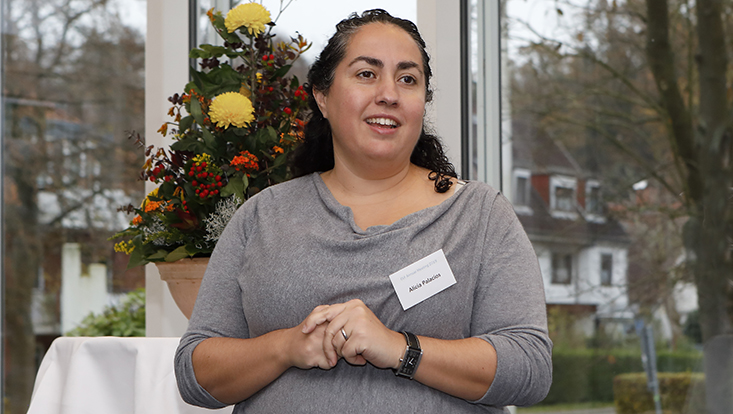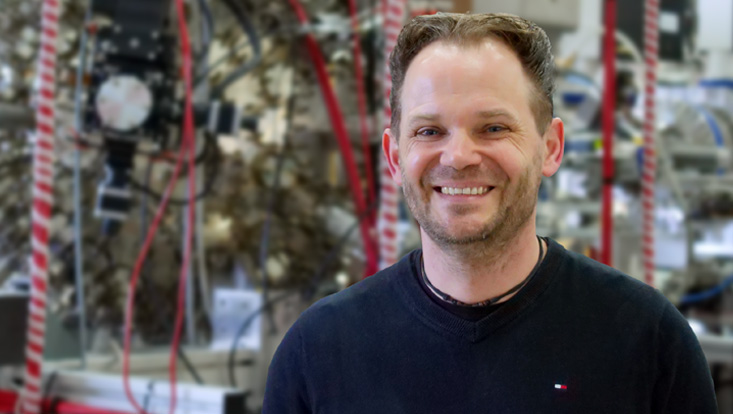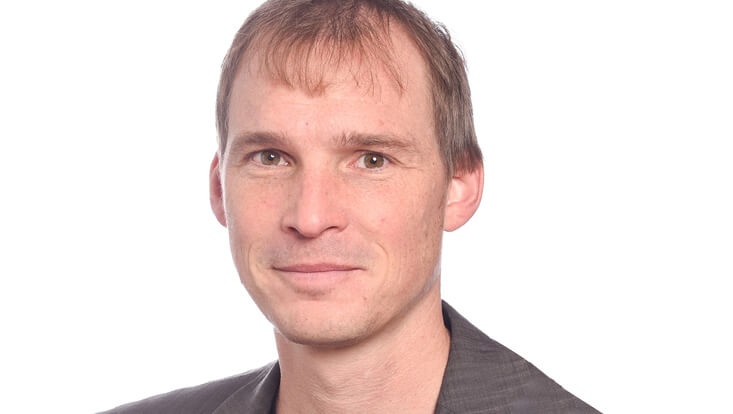Imaging of Matter
Dresselhaus awardee: research and teaching are a good combination
21 January 2020, by Ingeborg Adler

Photo: UHH/CUI, Peter Garten
In the family of Prof. Alicia Palacios, education was regarded as a very high good. And although there was a lack of female role models, especially in the natural sciences, she embarked on a career in theoretical chemistry. On the occasion of the presentation of the Mildred Dresselhaus Award at the annual meeting of the Cluster of Excellence "CUI: Advanced Imaging of Matter", the junior prize winner gave insights into her career. Alicia Palacios teaches theoretical and computational chemistry at the Autonomous University of Madrid and is an expert in ab initio methods for describing ultrafast electronic processes in small molecular systems on attosecond timescales.
The mother was 12 when she started working, the father 14. She started as a seamstress, he worked in the administration of a textile company in a small village in the Spanish region of La Mancha. But unlike the romantic novel hero Don Quijote de la Mancha, the parents had very clear ideas about life: they took over the business and gave their three children a sound education. A daughter studied Architecture, the second Chemistry and the youngest brother Medicine.
"It was very important to my parents to enable us to study," says Alicia Palacios. "They made many sacrifices for this. For 30 years, until the competition from China became too overwhelming, they ran the textile company. Their acts made it very clear to the children how important work was. Both continued their education and built up their own library at home. There were many encyclopedias on the shelves, including a large collection on the chemistry of wine. "These books attracted me as a child," recalls Alicia Palacios, who also played football and theatre.
You just had to understand the natural sciences
When she was 14, her parents sent her and her sister to a boarding school in Madrid. Two years later, they already had to decide between the natural sciences and the humanities. For Alicia, this time was full of doubts and she initially decided on a mixture of literature, physics and chemistry. The decision in favor of science was made for a simple reason: "The natural sciences were less time-consuming, because you just had to understand". She completed her bachelor's degree in chemistry and was amazed when her professor immediately offered her a special research project. But at that time, a master's degree in educational science was her priority: "I was slowly realizing what research and theoretical chemistry meant, I discovered publications in theory and the Unix environment, and I was gradually realizing what a PhD meant.” In 2006 she received her PhD in Theoretical and Computational Chemistry from the Autonomous University of Madrid (UAM). Research and teaching were a good combination for her.
Working was like playing Ping-Pong
A poster session then turned out to be a job interview for a postdoctoral position at the Lawrence Berkeley National Lab in the USA. "The three and a half years there were a fantastic experience. I had two very good advisors from whom I learned a lot. Working with them was like playing Ping-Pong." In 2009 I had the opportunity to go back to Spain. As usual there, she returned to the group of her PhD supervisor, Fernando Martin, at UAM. When asked who her role models are, who has influenced her career the most, she immediately says his name and those of her advisors in Berkeley, Bill McCurdy and Tom Rescigno, followed by two collaborators, Henri Bachau and Piero Decleva, whose prudence she learned to appreciate. "That's how I got to know different working styles," sums up Alicia Palacios.
The contact with women was missing
What was missing was contact with women. Both her supervisors as well as her PhD students have all being men up to now. "There is a cultural prejudice that needs to be corrected," demands Alicia Palacios.
For the future, the scientist hopes for a permanent position and funds for truly independent projects. However, everything depends on the actual possibilities - and these are also determined by the three and five year old sons. The father is Austrian and speaks German with the children. Alicia Palacios has also been learning German for three years - good conditions for the entire family's research stay in Hamburg in connection with the Mildred Dresselhaus Program.


